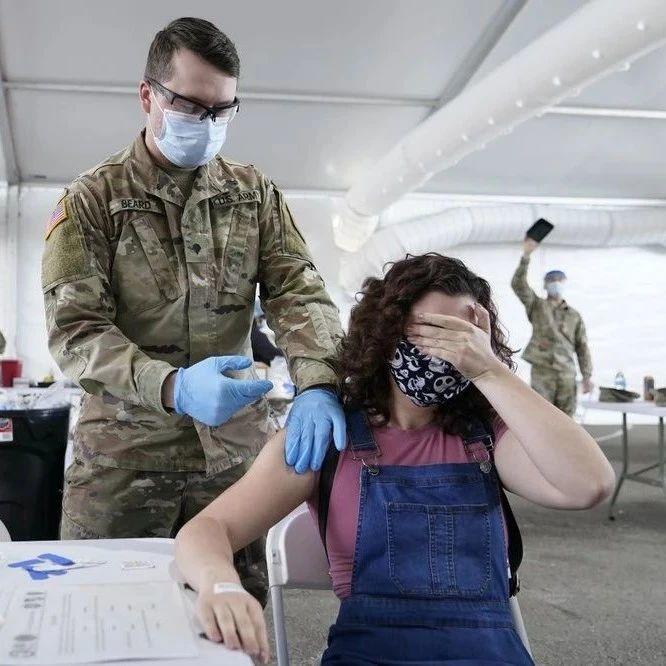

*This article is authorized to be reproduced from "America Online"
According to NBC reports, experts said that any of the three new coronavirus vaccines currently being vaccinated in the United States may have side effects.But not everyone has side effects, and the forms of side effects are also different.For those with side effects, experiencing these is not necessarily a bad thing.In fact, this is a signal that a person's body responds to the virus. It tells us that the vaccine is effective.So, why do some people have stronger side effects?

●Young people are more likely to report side effects.
Chicago Public Health Director Allison Arwady (Dr. Allison Arwady) said that it is because overall young people have stronger immune systems.The side effect is an immune response.
●Women are more likely to report side effects.
Awadi said that on the one hand, it may be because women are more likely to report their physical reactions, on the other hand, serious reactions are more likely to appear in women.
Why is this so?Awadi explained that because estrogen can increase the immune response, and testosterone can reduce the immune response.Moreover, many immunomodulatory genes can survive on the "x" chromosome, women have two x chromosomes, while men have only one.All these reasons cause women's immunity to be higher than men's overall.Therefore, we see that women are more likely to report some side effects.
Data from the US Centers for Disease Control and Prevention (CDC) also showed that surveillance during the first month of vaccination revealed that women are more likely to have side effects than men.Data shows that from December 2020, 12 to January 14, 2021, more than 1% of side effects were reported by women.At the same time, women received approximately 13% of the vaccine injections during the same period.
●Does the occurrence of side effects mean that you are infected with the new coronavirus?
The side effects may vary, depending on whether you have been infected with the new coronavirus.More side effects are a bit like a booster for the immune system. Your immune system has learned some experience how to protect yourself, but this kind of protection is not long enough. Side effects can boost the effect.
●Are the side effects of the second injection more common?
Yes, this is the case with Moderna and Pfizer vaccines.
The CDC pointed out that two vaccinations are necessary. Both Moderna and Pfizer vaccines require two injections to get the maximum degree of protection. The CDC says that even if you have side effects after the first shot of the vaccine, you should get the second shot unless the vaccine provider or your doctor tells you not to get it.
●What if there are no side effects?
Awadi said that the absence of side effects does not mean that you are not protected.According to Mark Loafman, an expert from the Cook County Health Bureau in Illinois, the body is still making antibodies.This actually just reflects how unique each of our immune systems is, and each of us reacts differently.
●What are the possible side effects?
The CDC reports that the most common side effects of all three licensed vaccines are at the injection site.Including: pain, redness, swelling.
Common side effects in the body include fatigue, headache, muscle pain, chills, fever, nausea and nausea.
The CDC recommends that people stay 15 minutes after vaccination and 30 minutes for people with a history of other allergies, so that if allergic reactions occur, they can be monitored and treated immediately.
●Do people report more side effects of one vaccine than others?
According to Pfizer, approximately 3.8% of clinical trial participants have fatigue side effects, and 2% have headache symptoms. Moderna said that 9.7% of participants felt tired and 4.5% felt headache.
Like Pfizer and Moderna, the main side effects of the Johnson & Johnson vaccine are pain at the injection site, flu-like fever, fatigue and headache.
But Awadi pointed out that Johnson & Johnson’s trial participants reported fewer side effects.If someone is very, very worried about the vice president, Johnson & Johnson will have fewer side effects and only one injection.
●What should I do if side effects occur?
CDC recommends that people discuss with their doctors after vaccination and take over-the-counter medications such as ibuprofen, paracetamol, aspirin or antihistamines to relieve pain and discomfort.
However, it is not recommended to take these drugs before vaccination in order to prevent side effects.
CDC recommends that you seek medical attention if you encounter any of the following conditions:
-
If the skin becomes red or tender within 24 hours after the injection.
-
If your side effects worry you or don’t go away after a few days
-
I have been vaccinated and think that a severe allergic reaction may occur after leaving the vaccination site. Please call 911 for medical assistance immediately.
*This article is a reprinted article for food,
For transmission and reference purposes only.
Does not constitute a recommendation for any behavior.




I like to remember to click "I'm watching"????





















